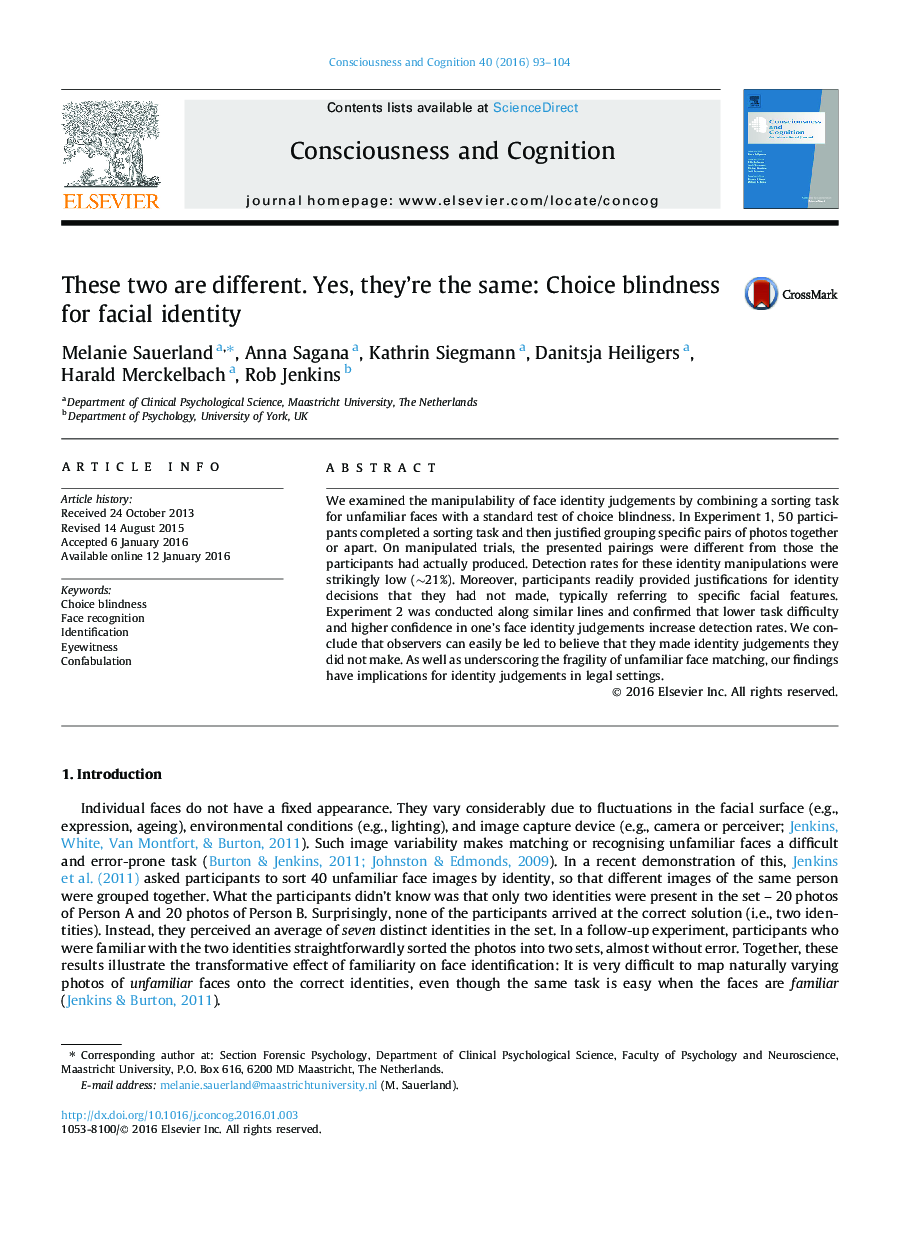| Article ID | Journal | Published Year | Pages | File Type |
|---|---|---|---|---|
| 927524 | Consciousness and Cognition | 2016 | 12 Pages |
•Identity judgements for unfamiliar faces are unreliable and unstable.•Observers can be led to believe that they made identity judgements they didn’t make.•Observers also readily justify those decisions.•The findings have implications for face representation and face learning.•The findings suggest a specific route by which innocents could be incriminated.
We examined the manipulability of face identity judgements by combining a sorting task for unfamiliar faces with a standard test of choice blindness. In Experiment 1, 50 participants completed a sorting task and then justified grouping specific pairs of photos together or apart. On manipulated trials, the presented pairings were different from those the participants had actually produced. Detection rates for these identity manipulations were strikingly low (∼21%). Moreover, participants readily provided justifications for identity decisions that they had not made, typically referring to specific facial features. Experiment 2 was conducted along similar lines and confirmed that lower task difficulty and higher confidence in one’s face identity judgements increase detection rates. We conclude that observers can easily be led to believe that they made identity judgements they did not make. As well as underscoring the fragility of unfamiliar face matching, our findings have implications for identity judgements in legal settings.
